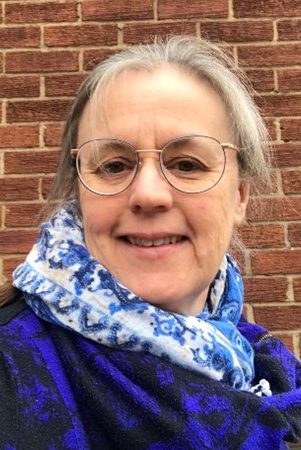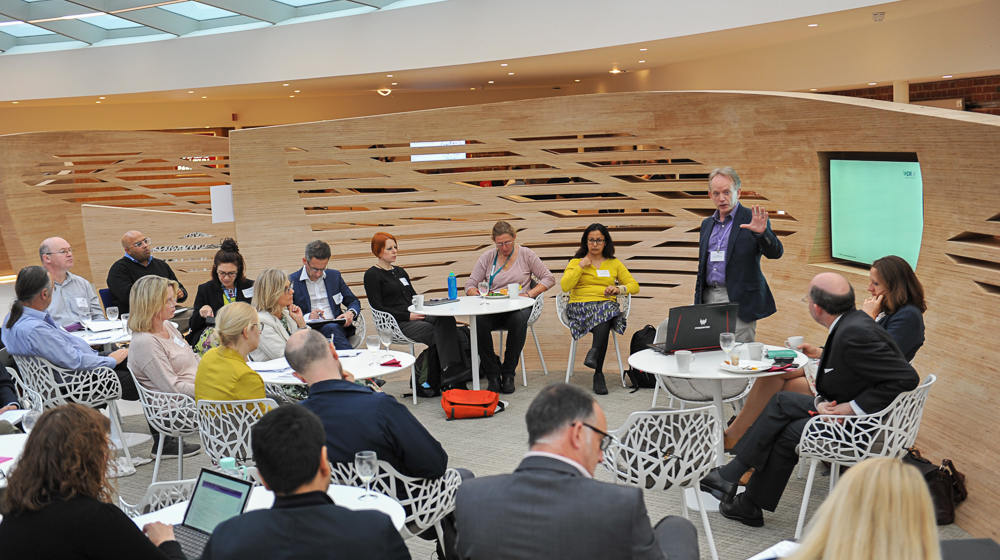February Public Advisory Board meeting - Trusted Research Environments
31 March 2022 | Author: Judith Thomas, Public Advisory Board member
The focus of the February Public Advisory Board (PAB) meeting was the activity the PAB aim to do around improving public involvement in Trusted Research Environments (TREs). Read this blog post by PAB member Judith Thomas on the key discussion points and next steps for the Board.
 With some nervous excitement I joined the HDR UK Public Advisory Board (PAB) in January 2022. For the past five years, I have been caring for my mum who is bed bound and totally dependent for all needs after her stroke in 2017. I am learning about health and social care and the importance of successful health data research to help patients and carers. I am hoping my care experience and lay perspective can help spread the word about the importance of public involvement in health data research to enable discoveries that improve people’s lives. I am learning so much and I am beginning to feel part of the team.
With some nervous excitement I joined the HDR UK Public Advisory Board (PAB) in January 2022. For the past five years, I have been caring for my mum who is bed bound and totally dependent for all needs after her stroke in 2017. I am learning about health and social care and the importance of successful health data research to help patients and carers. I am hoping my care experience and lay perspective can help spread the word about the importance of public involvement in health data research to enable discoveries that improve people’s lives. I am learning so much and I am beginning to feel part of the team.
Trusted research environments (TREs) were the focus for our February meeting, an amazing new concept to me. TREs, also known as a Data Safe Havens, are highly secure computing environments that provide remote access to health data for approved researchers. A TRE can store data safely and securely, and these secure environments have been set up across academic institutions, some in partnership with public agencies. TREs make a wealth of data accessible to reliable, genuine researchers nationally, but the data never leaves the safety of the TRE and usage can be monitored carefully. The TREs are structured around the Five Safes framework for the access of health data – safe people, safe projects, safe settings, safe data, and safe outputs.
PAB believes that TREs are a great tool for providing safe and secure access to health data for approved researchers, but want to find ways to enhance public involvement in their set up and management. PAB want to explore how patients and the public are involved now and how greater involvement can be encouraged. By improving public involvement in TREs, we hope to reassure patients and the public that TREs are a trustworthy data storage environment enabling greater access to wide ranging data sets, and can offer greater scope for impactful research by genuine, trained researchers.
There is still much to learn about public involvement in TREs, therefore the PAB are exploring the idea of hosting a ‘share and learn’ session with a range of TRE providers and other data custodians. We hope that from this session we will have a better understanding of how patients and the public are involved in TREs and what the biggest challenges are for TRE providers. By sharing good practice and lessons learned from current TREs about their experiences, positive or otherwise, PAB will use this knowledge to develop our activities to try and affect meaningful change in how TREs involve public contributors in the future. We can also use this knowledge to strengthen existing TREs run by members of the UK Health Data Research Alliance, and encourage other TREs in the network and any new TREs that may be set up to enhance public involvement, and hopefully public trust.
I have learnt so much in the two months I have been involved with HDR UK, the website is full of fascinating information. The case studies and news items show that the already developed Alliance is improving the use of the UK’s health and care data, helping discoveries that improve lives. The opportunity to be involved with PAB has given me a personal challenge to develop my knowledge and confidence alongside my caring role in a very welcoming and professional team.



